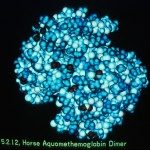Lien vers Pubmed [PMID] – 27410252
FEBS Lett. 2016 08;590(16):2748-56
Analyzing protein ubiquitylation changes during physiological or pathological processes is challenging due to its high reversibility and dynamic turnover of modified targets. We have developed a protein microarray to assess endogenous ubiquitylation levels from cell cultures, employing tandem ubiquitin-binding entities (TUBEs) with three or four ubiquitin-associated (UBA) domains as capture probes. Adriamycin (ADR)-stimulated MCF7 cells were used to differentiate protein ubiquitylation levels between cells that are sensitive or resistant to ADR treatment. We show that TUBEs-based microarrays can be used for the analysis of cellular processes regulated by ubiquitylation and for the detection of pathologies with aberrant ubiquitylation levels.

